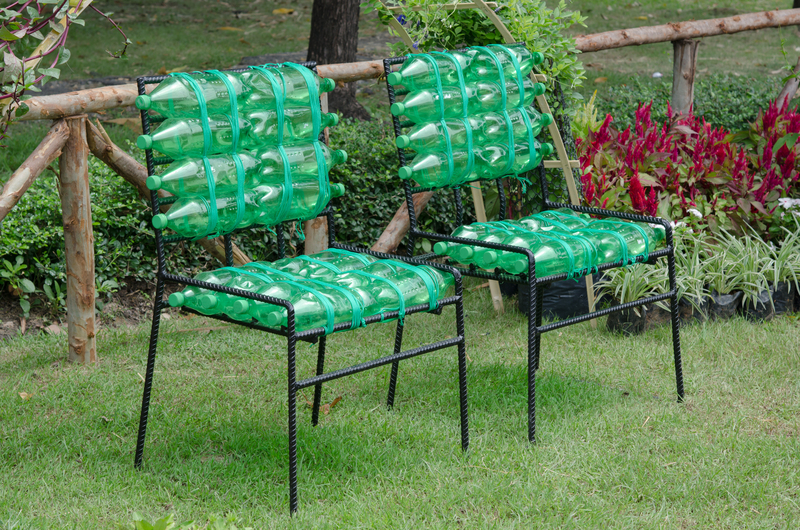How to Clear Out Bulky Waste Items and Keep More Money in Your Pocket
Clearing out bulky waste items is a necessary task for homeowners, tenants, and businesses alike. Whether you're decluttering, moving, or renovating, knowing how to efficiently get rid of large, unwanted items--such as old furniture, appliances, and yard waste--not only helps maintain a clean environment but can also save you money in the process. In this comprehensive guide, we'll walk you through actionable strategies for bulky waste removal while discovering ways to cut costs and even put money back in your pocket.
Understanding Bulky Waste and Its Challenges
First, let's define bulky waste items. These are items too large for regular curbside collection, including:
- Sofas and couches
- Mattresses and box springs
- Refrigerators and large appliances
- Exercise equipment
- Carpets and rugs
- Yard debris and branches
- Old electronics
Why Is Bulky Waste Disposal So Costly?
Municipalities and private waste companies often charge premium fees for disposing of large items. Besides requiring extra labor and resources, bulky waste can contain hazardous materials or need special recycling processes, further increasing expenses.

Top Strategies for Clearing Out Bulky Waste Affordably
If you want to clear bulky waste items without breaking the bank, follow these proven steps:
1. Try Selling or Donating Before Disposing
One person's trash is another person's treasure. Before you pay to dump items, consider ways to sell or donate bulky waste items:
- List on Online Marketplaces: Post your items on platforms like Facebook Marketplace, Craigslist, OfferUp, or Gumtree. Even if items aren't in perfect condition, someone may want them for parts or as upcycling projects.
- Donate to Charities: Many local charities and thrift stores accept furniture, appliances, and other large goods. Some organizations (like Goodwill, Salvation Army, or Habitat for Humanity) offer free pickups for qualifying items.
- Post in Freecycle Groups: Community members may be willing to collect your bulky goods for free. Search for Freecycle or neighborhood groups on social platforms.
2. Check Your Council's Bulky Waste Collection Services
Most cities and towns offer bulk waste collection programs, sometimes for free or at a reduced rate. Here's how to make the most of these services:
- Research Collection Schedules: Many municipalities provide annual or monthly scheduled bulky item pickups. Contact your city or check their website for dates and requirements.
- Understand Accepted Items: Always verify what the council will accept, as some exclude certain electronics, hazardous waste, or construction debris.
- Book Early: Spots fill up fast, so schedule your pickup in advance to avoid private removal fees.
3. Organize a Community Clean-up or Bulk Waste Event
If your area lacks regular bulky waste pickups, rally your neighbors to organize a communal collection event. Here's how:
- Partner with homeowners' associations or local environmental organizations
- Negotiate group rates with private haulers or skip/bin companies
- Share disposal costs among participants, reducing the individual outlay
4. Rent a Skip or Dumpster Only When Necessary
For major clear-outs, renting a skip bin or dumpster might be unavoidable. However, you can save money on bulky waste removal with these tips:
- Share with Neighbors: Split the cost of a skip with nearby households also in need of disposal
- Choose the Right Size: Avoid overpaying for space you don't use. Accurately estimate how much waste you'll generate
- Recycle First: Separate recyclables--like metals and e-waste--to minimize what goes in the bin
5. Try 'Junk Removal' Services--But Compare Prices
If time or convenience is your top priority, you might opt for a professional bulky junk removal company. However, prices vary widely. Here's how to keep costs low:
- Get Multiple Quotes: Always compare at least three local providers before booking
- Look for Specials: Some companies offer discounts for booking online, off-peak times, or removing multiple items at once
- Clarify Price Structure: Make sure you understand whether the quote is by volume, weight, or item count to avoid hidden fees
6. Leverage Local Scrap Yards and Recycling Centers
Bulky items often contain valuable recyclable materials. Consider:
- Metal Recycling: Many scrap yards pay by weight for appliances, exercise machines, BBQs, old bikes, and metal bed frames
- Electronics Drop-Off: E-waste recycling events or companies may accept (or even pay for) old TVs, computers, and refrigerators
- Construction Materials: Some centers take old wood, drywall, tiles, and fixtures--saving you landfill fees
7. Use Your Own Transport for DIY Disposal
If you have access to a truck or trailer, you can often haul your bulky rubbish to a landfill, transfer station, or recycling facility yourself. Here's how this saves money:
- Only pay the actual disposal rate per load or weight--no hidden charges for labor or transport
- Potential to combine trips with friends or neighbors for shared savings
- No waiting for scheduled pickups--work on your own timeline
8. Get Creative with Upcycling and Repurposing
Some bulky items destined for the dump can be given a second life with a little creativity:
- Convert old pallets into garden furniture or raised beds
- Use bed frames or ladders for shelving or art projects
- Give dressers and tables a new coat of paint for resale or reuse
- Turn bathtubs into outdoor planters
How to Reduce Future Bulky Waste & Save More Money
Prevention is key. The less you have to dispose of later, the more time and money you save. Here are smart habits for avoiding new bulky waste expenses:
Buy Quality, Not Quantity
Invest in durable, timeless furniture and appliances that won't need replacing every few years. Sustainable choices cut down on waste and expenses over time.
Opt for Modular or Multi-Use Items
Select items that can break down for easier disposal or serve multiple purposes, like storage ottomans or extendable tables.
Rent, Borrow, or Buy Secondhand
Before buying new, check rental shops, thrift stores, or online marketplaces. This approach reduces your waste footprint and is kinder on your wallet.
Keep Items in Good Repair
Clean and maintain large items to extend their usable life and boost their resale or donation value down the road.
Common Questions About Bulky Waste Disposal and Saving Money
Q: Can I leave bulky waste items on the curb for regular collection?
No. Most standard garbage services do not accept bulky items without special arrangements. Unattended items can lead to fines or neighborhood complaints.
Q: Are dump or landfill fees expensive?
Costs depend on size, weight, and type of material. Most landfills charge by volume (per cubic yard) or weight (per ton). By sorting recyclables and donating usable items, you can minimize what you pay for landfill disposal.
Q: Is it illegal to put bulky waste in someone else's dumpster?
Yes, this is often classified as illegal dumping and can carry heavy fines. Always use legal means to dispose of large waste items.
Q: Can I earn money from my bulky waste?
Absolutely. Scrap metal yards, e-waste recycling, and selling or upcycling furniture are legitimate ways to generate cash from goods you no longer need.

Summary: Clearing Bulky Waste & Maximizing Your Savings
Clearing out large, unwanted items doesn't have to burn a hole in your pocket. Prioritize selling, donating, or giving away items whenever possible--this approach is free (or even profitable) while helping the community. Take advantage of local council programs, share costs with neighbors, or do-it-yourself when feasible. If you must pay for disposal, always compare prices and separate recyclables first to cut down costs.
By making smart choices at every stage--from purchase to disposal--you can keep more money in your pocket, help the environment, and enjoy a clutter-free space. Next time you face the challenge of bulky waste removal, remember these tips and save both time and cash!
Need More Help?
For more bulky waste clearance ideas and money-saving tips, connect with your local waste authority or search for local recycling events. Remember: a little planning now leads to big savings later!
